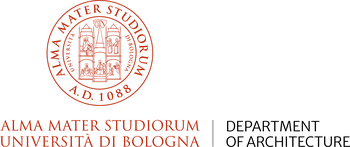
CMW WORKSHOPS
The 1st Ravenna workshop on New Frontiers of Construction Management was organized in 2013. CMW 24 shall be the 3rd one in the continuity of these valuable gatherings of academics and industry representatives. Ravenna CMW workshops are forums for presentations of latest valuable research-based knowledge and developments that are touching construction management. The mission of these workshops is to provide steppingstones for further advancements of construction management with the innovations, breakthrough results and discussions.
The workshop will be fully in attendance.
Participants have to enroll in the participant portal. No fee is required.
CONSTRUCTION PROCESS SUSTAINABILITY
Sustainability perspectives of the building construction process, according to recent theories addressing circular economy, propose new research and development topics for the construction sector, particularly for Construction Project Management. Managing the building construction process remains of central importance for both environmental and economic sustainability, and for the growth of the construction sector which, also due to recent global instability, is looking for a new identity and production framework. The "Circular Economy" theme focuses the construction process on its different Value Chains, creating more efficient connections between the various stakeholders with the goal of increasing the reuse of materials and products by extending their life cycle, minimizing waste and reducing the use of natural resources to decrease environmental impacts, in particular, Greenhouse Gas emissions.
In the context of collaboration between the Building Production scientists of the University of Bologna and the Construction Management research groups of Tampere University (Finlaind) and Tallinn University of Technology (Estonia), this workshop aims to highlight key research topics that could be drivers of change and innovation in the management of the building process in its various stages, including design, construction, operation and maintenance, disposal and reuse.
The workshop focuses on research topics that can foster process and product innovation for the implementation of the "European Green Deal" in the construction sector, as part of the "EU Taxonomy" for sustainable economic activities. The objectives include: the application of the concepts of circular economy in the direction of greater environmental and economic sustainability over the entire production cycle and service life of the building asset; promoting greater efficiency of processes from a supply chain and Lean perspective, through the development of innovative methods and tools; digitalization (Building Information Modelling and Artificial Intelligence) in all phases of the building process: design, construction, operation management, decommissioning and reuse.
